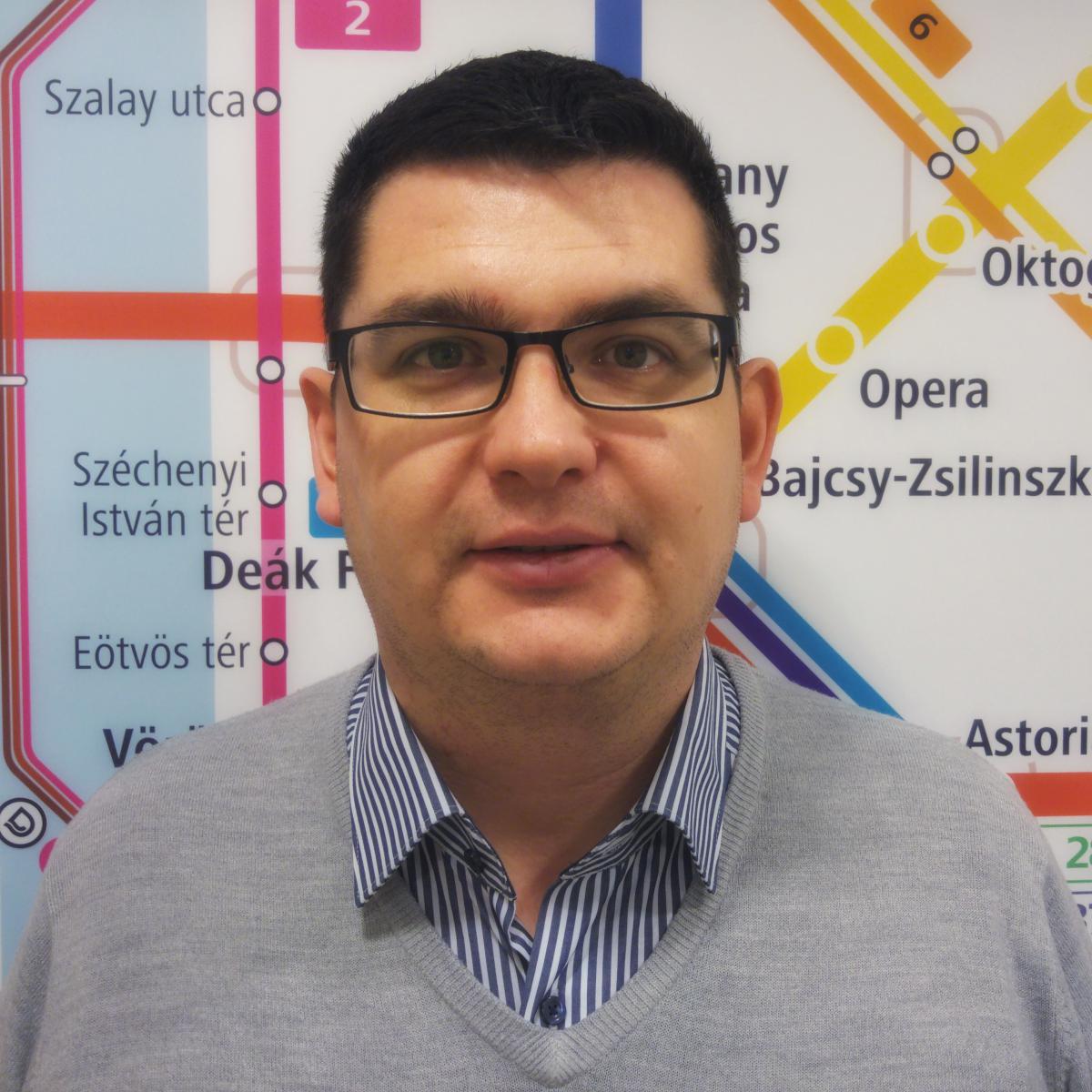2016. február 11.
In our new series we will show the everyday life of civil engineers working in different fields, to help the to-be and present university students see what opportunities does a civil engineer have.
The first interview of the series is readable HERE, the second is HERE and the third is HERE.
Tamas Molek works at Project monitoring Specialization of Strategy and Innovation Directorate at BKK (Centre for Budapest Transport), before he took part in building some sections of M0 motorway. Our interview shows what BKK project monitoring is, and we’ll find out why is it worth to choose Faculty of Civil Engineering.
What do you exactly do now and for how long do you work at BKK?
I started working at BKK in March of 2013, and I do project monitoring. I supervise different kind of investments – realized in Budapest, mainly road building projects. The Project monitoring is a real team, there are 12 people here and we always help each other. When the Municipality of Budapest instructs BKK Zrt. to renovate a road or a piece, then we have to supervise the whole construction from finding the financial resources, through the contracting and the requisite reports, until the follow-up estimate. The hugest construction we had recently is the interweaving tram network of Buda, and before that the restoration of the tramway 1 and tramway 3 lines and the south prolongation of the tramway 1.
What kind of jobs did you have before?
I took part some sections of the M0 motorway building, within the implementation part, half on the ground and half in the office, after that I dealt with public tenders comprehensive completion. My actual job is mainly takes part in the office. According to my tasks I have to participate in field surveys, but recently I couldn’t incorporate it in my daily routine.
Why did you choose Faculty of Civil Engineering? What kind of specialization did you performed?
I’m from an engineer family, my grandfather is a civil engineer, my mother is an architect. I tried the drawing entrance exam of the Faculty of Architecture, but fortunately I failed. I found out that architecture is not my cup of tea, when I saw the to-be architects drawing the capitals in the University buildings free-handed. I couldn’t bare that, I’ve always hated free-handed drawing.
Did you know from the beginning that what kind of specialization were you interested in?
No, the highway and railway engineering took shape during the first years. Many of my friends chose that specialization, and I felt talent in myself for that direction. And I thought over that the M0 building is in process, so they would need many highway-specialized civil engineers. And I was right.
Are you satisfied with your wage, and you were satisfied with it before?
Yes, I have been always satisfied. My wage constantly rises from my first job, and now this would be enough to establish a family.
What do you thing, what kind of student should be a civil engineer?
I think, it’s important, that the to-be civil engineer can find the beauty in this profession, and be properly persistent. Now I can taste the money-part of the projects, but parallel I do engineering too, what is a good combination of the knowledge I get at university and my real life experiences. At University I learned that I rarely can use a ready solving-formula for the problems come up during working, but have to find the unique solutions. This is important, because – as the usual Hungarian higher education training – it cannot be practice focused enough, or give a project- or field specified knowledge, but it gives a great base for starting the professional life. I did not felt myself lost when I started working, because I learned that problem-solving thinking. So I think a student, who like problem-solving and interested in technical subjects should choose Faculty of Civil Engineering.

